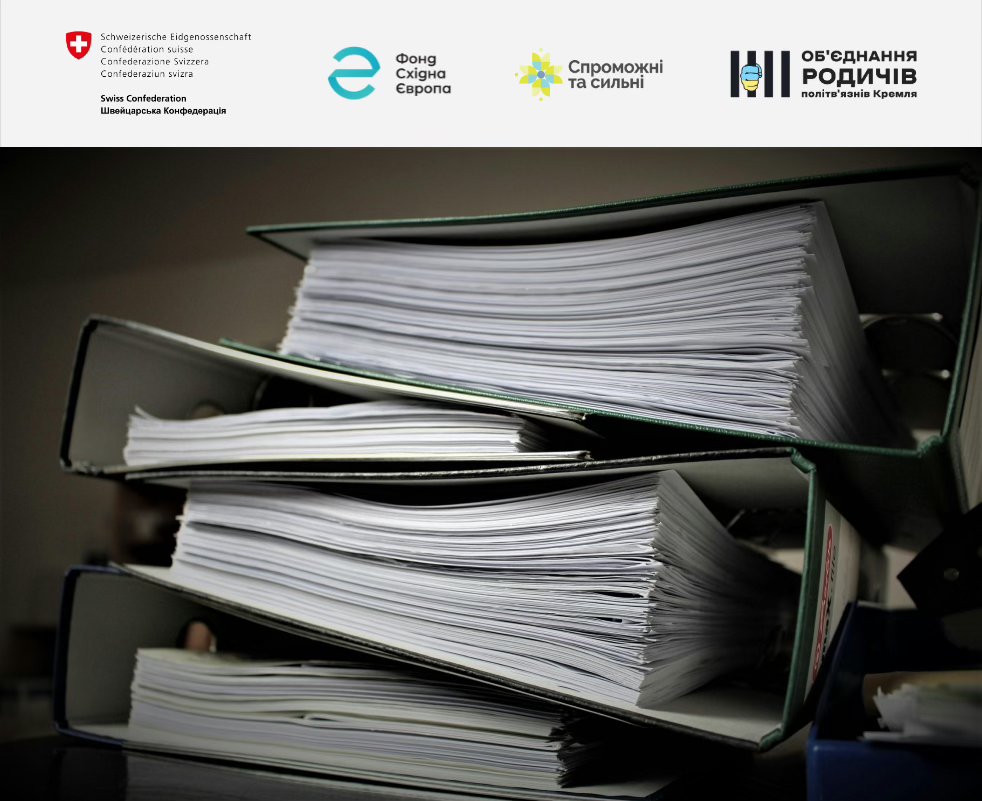

If you or your loved one became a victim of unlawful detention in the temporarily occupied territories, you can submit an application to establish this fact. This is important for receiving state support and for documenting the violation. But what exactly should be included in the document package?
What influences the content of the package?
The required documents depend on various factors:
– whether the person is still in captivity,
– whether the family previously submitted any applications,
– whether the person was released independently or through a “mutual release” procedure,
– whether law enforcement bodies responded.
The earlier the documentation process begins, the better — sometimes families may apply even before a person is released.
Key documents to collect:
Evidence of detention:
– publications in the media or hostile Telegram channels,
– interviews,
– documents from the employer confirming absence from the workplace,
– protocols (if issued by occupying authorities),
– any information confirming detention, searches, transfers,
– documents related to public activity: journalist or volunteer ID, commendations, certificates, publications,
– documents confirming family ties with military personnel if this could be the reason for detention,
– written witness testimonies: full name, place, and circumstances of the detention. If not available — indicate names and contacts if known.
Investigation status:
– certificate on the status of the investigation or transfer of the case to court (may be requested via petition to the investigator),
– response from the Joint Center of the Security Service of Ukraine (SBU) for locating detained individuals.
Evidence or facts confirming that the person falls into categories defined by law:
– participation in human rights or political activity,
– active civic position,
– cases of demands made during captivity (typical for hostages).
Important: Sometimes the Ministry for Communities and Territories Development of Ukraine responds to the application with a request for additional documents — for example, evidence confirming that a war crime was committed against the person.
Recommendation: If the family is able to provide witness testimony before the person is released — it is advisable to do so. The Association of Relatives of Political Prisoners of the Kremlin has its own documenters who collect evidence of war crimes. This helps gather persuasive proof and reduce the time needed for application review.
You can find a detailed step-by-step guide on our website:
https://www.relativespp.org/article/yak-vstanoviti-fakt-pozbavlennya-osobistoyi-svobodi
We provide legal support to civilians who wish to establish the fact of deprivation of liberty for themselves or their loved ones after release. Contact the Association of Relatives of Political Prisoners of the Kremlin via the form on our website:
https://www.relativespp.org/
This publication was prepared within the framework of the "Capable and Strong" program, implemented by the East Europe Foundation with the support of Switzerland.
Photo: Pixabay